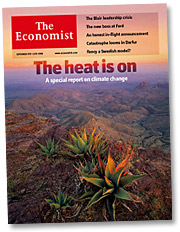The World Bank Group recently launched an initiative to provide modern lighting to the 250 million people in Sub-Saharan Africa who have no access to electricity. Jointly managed by the World Bank and IFC, Lighting Africa aims to develop market conditions for the supply and distribution of new, nonfossil fuel lighting products, such as fluorescent light bulbs and light emitting diodes, in rural and urban areas of the region that are not connected to the electricity grid.
The "energy poor" in Africa spend about $17 billion a year on fuel-based lighting sources, such as kerosene lamps, that are costly, inefficient, and provide poor quality light while polluting and posing fire hazards. For these consumers, lighting is often the most expensive item among their energy uses, typically accounting for 10 to 15 percent of total household income. Hence there is a potentially huge market for modern lighting products that are safe and reliable, that provide higher-quality light, and that are cost-competitive with fuel-based lamps, and powered by renewable energy or mechanical sources.
Lighting Africa, which is supported by a number of donors, including seed money from the Global Environment Facility, seeks to attract the international lighting industry, as well as local suppliers and service providers, to this market.
Lars Thunell, IFC Executive Vice President and CEO, said, "In partnership with the private sector, IFC will help develop sustainable business models to supply good quality lighting to the poorest of the poor in Africa. Our goal is to give families and small business owners clean, modern, and affordable alternatives to fossil fuel lamps."
S. Vijay Iyer, World Bank Energy Sector Manager for Africa, said, "Modern lighting will mean improved air quality and safety for millions of people in Africa. It will mean longer reading hours for students and longer business hours for small shops. Lighting Africa will directly contribute to the Millennium Development Goals. It is a cornerstone of the World Bank’s Clean Energy and Development Investment Framework and the Africa Energy Access Scale-up Plan."





